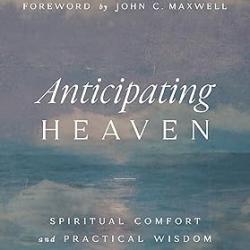I don't want to exaggerate this. The majority opinion does reject one of our arguments, which is that the "all comers" policy, even if it were applied in a non-discriminatory basis, is unreasonable in light of the purpose of the forum. I regret that they rejected that. That is a defeat. But that was only one of a number of arrows in our quiver.
Now, legally, there is nothing to prevent other universities from deciding to use an "all comers" policy as a way of manipulating religious groups, including and excluding those they wish to include and exclude?
It may be harder than they think. When you get around to trying to write down what an "all comers" policy would really look like, it's a fairly daunting task. You'll note that Hastings in its brief in the Supreme Court backpedaled furiously away from its "all comers" policy because they realized how many groups would be destroyed by it. They introduced a bunch of previously unmentioned exceptions to it. For example, groups can have an attendance requirement; a requirement to pay dues; they can have a competitive process for joining. They said that groups can enforce conduct requirements, without specifying what conduct requirements can be enforced.
The reason they did that is because practicalities make a blanket "all comers" policy absurd. So they are going to have to have exceptions. Once you get around to writing the exceptions, it's going to be pretty difficult for law schools to come up with an "all comers" policy that really does what they would like it to do.
The Supreme Court decided this case on the basis of what is genuinely an abstraction: a description in a deposition of a policy that has never been enforced in reality. That is upsetting and annoying, but it also means that not very much was really decided.
So, if I'm the leader of a Christian student group, I should not suddenly feel as though the ground beneath me is falling away?
No.
How do you think the other side is receiving this? Are they toasting a victory? Or do they also perceive this as a very limited win?
We will never know.
A lot of the danger in decisions of this sort is that in the real world they're often interpreted as much broader than they actually are on the pages of the ruling. This is one of the sad things about the decision. It will unleash a lot of anti-free-speech efforts on campus, and lead to heightened tensions and increased litigation.
Michael W. McConnell received his law degree at the University of Chicago and clerked for Supreme Court Justice William Brennan. He served as a federal judge on the Tenth Circuit Court of Appeals from 2002 to 2009, and now teaches at the Stanford Law School and directs its Constitutional Law Center. Respected on the Right for his originalist judicial philosophy, McConnell was considered a prime candidate for selection to the Supreme Court during the George W. Bush administration. Yet McConnell is also respected on the Left for his criticism of the impeachment of President Clinton and Bush v. Gore. It was Michael McConnell who brought a young Barack Obama on a fellowship to the University of Chicago.
McConnell has written numerous books and articles and numerous influential opinions. In the four opinions he wrote as a judge that were reviewed by the Supreme Court, his opinions were affirmed in each case.





